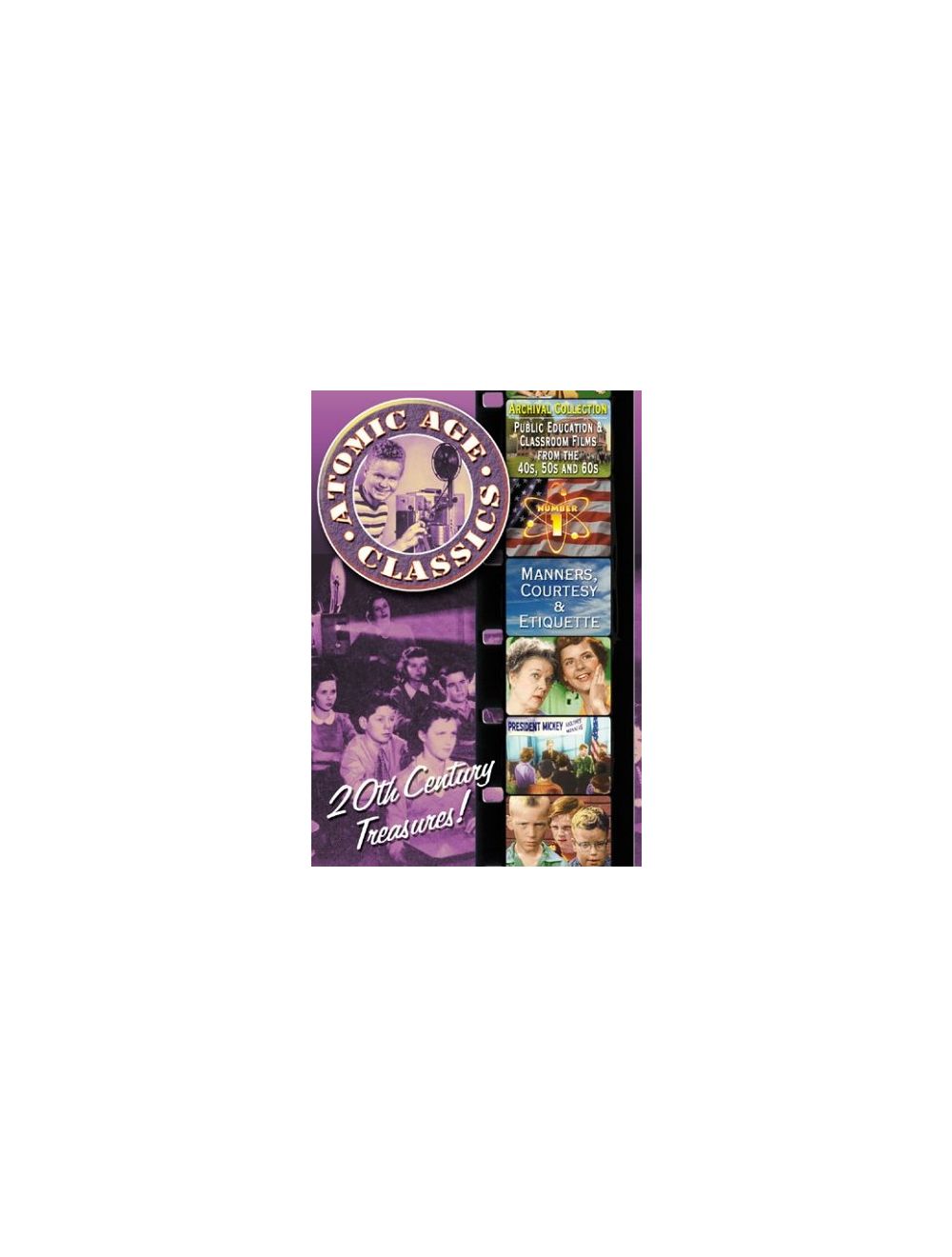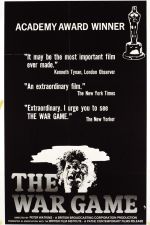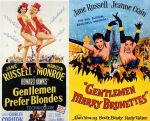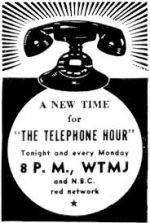Atomic Age Classics, Vol. 1: Manners, Courtesy & Etiquette On DVD
Actor: N/A
Director: N/A
Genre: Documentaries
Year: N/A
Studio: Alpha Video
Length: 101
Released: October 25, 2005
Rating: Not Rated (MPAA Rating)
Format: DVD (NTSC/Region 1)
Misc: Black & White
Language: English
Subtitles : N/A.
Description :
In addition to the burden of teaching the 3 Rs, schools were often expected to instill certain life-skills in their pupils, one of these being the ability to get along with others. The films on this DVD try to persuade the viewer to consider the benefits of "being nice" and thinking of others' feelings. What is especially interesting about these particular films is that parents aren't the ones offering advice on courtesy. Perhaps educators assumed that parents were either too busy to teach the kids or simply didn't know the value of courtesy themselves.
Are Manners Important? (1954; Encyclopedia Britannica Films; 11 minutes): Mickey thinks politeness is all that grownups think about. Lack of courtesy might not keep him from being elected President of the U.S., but a near riot in the Oval Office may convince him to reconsider his policy on good manners.
Good Table Manners (1951; Coronet Films; 10 minutes): In this "time travel paradox," clueless Chuck keeps messing up at the dinner table and once again, the parents aren't any help in providing proper guidance. Thankfully, "Future-Chuck" appears and sets "young-Chuck"straight.
We Play And Share Together (1951; Burnford Productions; 11 minutes): Irene and Susan refuse to play with Michael and soon learn that they aren't having as much fun as they might have if they shared. The fact that the girls have built a tunnel and want the boy to enter it with his train shouldn't be considered as anything sexual-honest!
Everyday Courtesy (1948; Coronet Films; 11 minutes): Billy and his mother attend his classroom's presentation on manners and courtesy. Through Billy's illustrations, we learn about simple gestures that make life with other people more tolerable. However, it seems most of the children's parents didn't bother to attend the politeness exhibit.
Exchanging Greetings and Introductions (1960; Young America Films; 11 minutes): First impressions are hard to shake, so this film teaches youngsters the importance of greetings and introductions. The film's producers are asking a lot from children who just a generation earlier were instructed to "speak only when spoken to."
Social Courtesy (1951; Coronet Films; 11 minutes): A moody teenager dreads taking Carol to a friend's party. Will learning the finer points of social courtesy help him have fun at the party and maybe get a second date? This film tries to help awkward teens overcome small interpersonal problems before they grow into real social crises-alienation, vandalism, alcoholism, crime and a lonely life as a bachelor.
Helping Johnny Remember (1956; Portafilms; 10 minutes): Kids in a limbo space are building a perfect little society out of shoeboxes and poster paint. Johnny has been banished from this world because he can't get along with the others!
By Jupiter (1941; Wilding Picture Productions; 26 minutes): Veteran Hollywood character actor Chick Chandler plays Thornton Poindexter, a hapless everyman who learns that a little kindness goes a long way when the Roman god Jupiter allows him to re-live one particularly miserable day.
This collection of short films were produced around the mid-20th century, and were an adult reaction to the burgeoning youth culture movement that, they felt, posed a very real threat to civilization! The films included are: "Are Manners Important'" (1954), which teaches manners to a young man with designs on the presidency; "Good Table Manners" (1951), which transports a boy backwards and forwards in time so he can teach himself table manners; "We Play And Share Together" (1951), which shows two girls how much more fun they'd have if they shared their toys; "Everyday Courtesy" (1948), which teaches children and adults how to be polite; "Exchanging Greetings and Introductions" (1960), which stresses how important it is to greet someone in a polite manner; "Social Courtesy" (1951), which teaches teenagers how to act in a social situation; "Helping Johnny Remember" (1956), which sees a group of kids building their own society, only to exclude a member due to his poor manners; and, finally, "By Jupiter" (1941), in which one man is allowed to relive a day in his life.
Actor: N/A
Director: N/A
Genre: Documentaries
Year: N/A
Studio: Alpha Video
Length: 101
Released: October 25, 2005
Rating: Not Rated (MPAA Rating)
Format: DVD (NTSC/Region 1)
Misc: Black & White
Language: English
Subtitles : N/A.
Description :
In addition to the burden of teaching the 3 Rs, schools were often expected to instill certain life-skills in their pupils, one of these being the ability to get along with others. The films on this DVD try to persuade the viewer to consider the benefits of "being nice" and thinking of others' feelings. What is especially interesting about these particular films is that parents aren't the ones offering advice on courtesy. Perhaps educators assumed that parents were either too busy to teach the kids or simply didn't know the value of courtesy themselves.
Are Manners Important? (1954; Encyclopedia Britannica Films; 11 minutes): Mickey thinks politeness is all that grownups think about. Lack of courtesy might not keep him from being elected President of the U.S., but a near riot in the Oval Office may convince him to reconsider his policy on good manners.
Good Table Manners (1951; Coronet Films; 10 minutes): In this "time travel paradox," clueless Chuck keeps messing up at the dinner table and once again, the parents aren't any help in providing proper guidance. Thankfully, "Future-Chuck" appears and sets "young-Chuck"straight.
We Play And Share Together (1951; Burnford Productions; 11 minutes): Irene and Susan refuse to play with Michael and soon learn that they aren't having as much fun as they might have if they shared. The fact that the girls have built a tunnel and want the boy to enter it with his train shouldn't be considered as anything sexual-honest!
Everyday Courtesy (1948; Coronet Films; 11 minutes): Billy and his mother attend his classroom's presentation on manners and courtesy. Through Billy's illustrations, we learn about simple gestures that make life with other people more tolerable. However, it seems most of the children's parents didn't bother to attend the politeness exhibit.
Exchanging Greetings and Introductions (1960; Young America Films; 11 minutes): First impressions are hard to shake, so this film teaches youngsters the importance of greetings and introductions. The film's producers are asking a lot from children who just a generation earlier were instructed to "speak only when spoken to."
Social Courtesy (1951; Coronet Films; 11 minutes): A moody teenager dreads taking Carol to a friend's party. Will learning the finer points of social courtesy help him have fun at the party and maybe get a second date? This film tries to help awkward teens overcome small interpersonal problems before they grow into real social crises-alienation, vandalism, alcoholism, crime and a lonely life as a bachelor.
Helping Johnny Remember (1956; Portafilms; 10 minutes): Kids in a limbo space are building a perfect little society out of shoeboxes and poster paint. Johnny has been banished from this world because he can't get along with the others!
By Jupiter (1941; Wilding Picture Productions; 26 minutes): Veteran Hollywood character actor Chick Chandler plays Thornton Poindexter, a hapless everyman who learns that a little kindness goes a long way when the Roman god Jupiter allows him to re-live one particularly miserable day.
This collection of short films were produced around the mid-20th century, and were an adult reaction to the burgeoning youth culture movement that, they felt, posed a very real threat to civilization! The films included are: "Are Manners Important'" (1954), which teaches manners to a young man with designs on the presidency; "Good Table Manners" (1951), which transports a boy backwards and forwards in time so he can teach himself table manners; "We Play And Share Together" (1951), which shows two girls how much more fun they'd have if they shared their toys; "Everyday Courtesy" (1948), which teaches children and adults how to be polite; "Exchanging Greetings and Introductions" (1960), which stresses how important it is to greet someone in a polite manner; "Social Courtesy" (1951), which teaches teenagers how to act in a social situation; "Helping Johnny Remember" (1956), which sees a group of kids building their own society, only to exclude a member due to his poor manners; and, finally, "By Jupiter" (1941), in which one man is allowed to relive a day in his life.
| Product Name | Atomic Age Classics, Vol. 1: Manners, Courtesy & Etiquette On DVD |
|---|---|
| This item is returnable | No |










